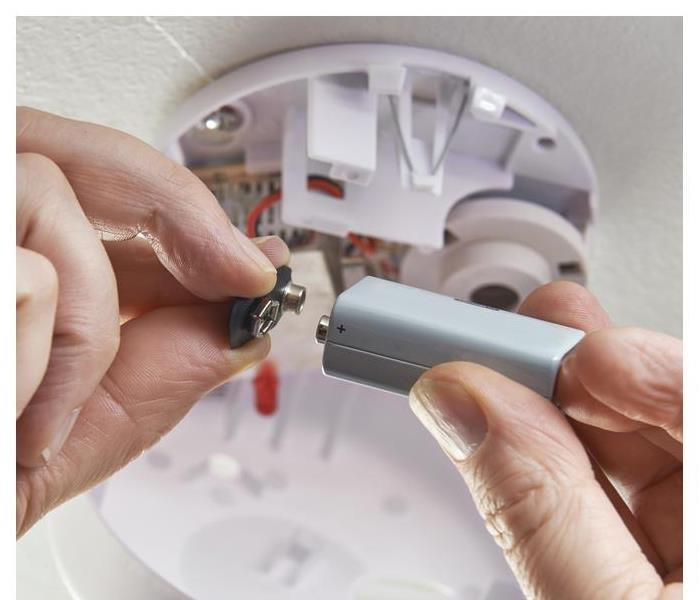Fire Alarms: The 3 Most Common Causes of False Alarms in Smoke Detectors
10/24/2018 (Permalink)
While a fire alarm is a terrifying noise, not all alarms require the Carrollton, TX, Fire Department or the recovery assistance of a fire restoration company. Some alarms, especially from smoke detectors, are false, but what causes these essential contraptions to produce a false alarm? Keep reading to find out.
1. Malfunction/False Alarm
Sometimes the only explanation of a false alarm is a malfunction. A smoke alarm is a piece of machinery, and as such, it is prone to some unexplainable quirks from time to time. That being said, every smoke detector that is labeled with the UL logo is rigorously tested for effectiveness and performance.
2. Low or Dying Batteries
Likely the most common cause of a false fire alarm is low or dying batteries. The recommendation is that you replace your smoke alarm batteries at least once per year, but because they are inconspicuous and rarely used, smoke detectors are easy to forget. It may be helpful to write a reminder on your calendar or set up an alarm on your phone to remind you to replace the batteries.
3. Dust and Smoke Damage
Oddly enough smoke and fire damage can cause a false alarm, as well as dust buildup. If a smoke detector has been exposed to fire and smoke before, the remnants of that damage can interfere with the detection process and trigger an alarm. Additionally, if dust builds up in the housing of the alarm blocking either the ionization or the photoelectric pulse, then it too can trigger a false alarm.
4. Accidental Test
Also, the accidental pressing of the test button can trigger a false alarm. Whether you were dusting around the smoke alarm, replacing the batteries, or trying to put the housing cover back on, the test button can easily set off a false alarm.
A false fire alarm may be one of the biggest frustrations a homeowner can experience. However, while false alarms may be a nuisance, there are several explanations for why they occur, and despite the irritation, you still can agree that a false alarm is better than no alarm at all.

 24/7 Emergency Service
24/7 Emergency Service
